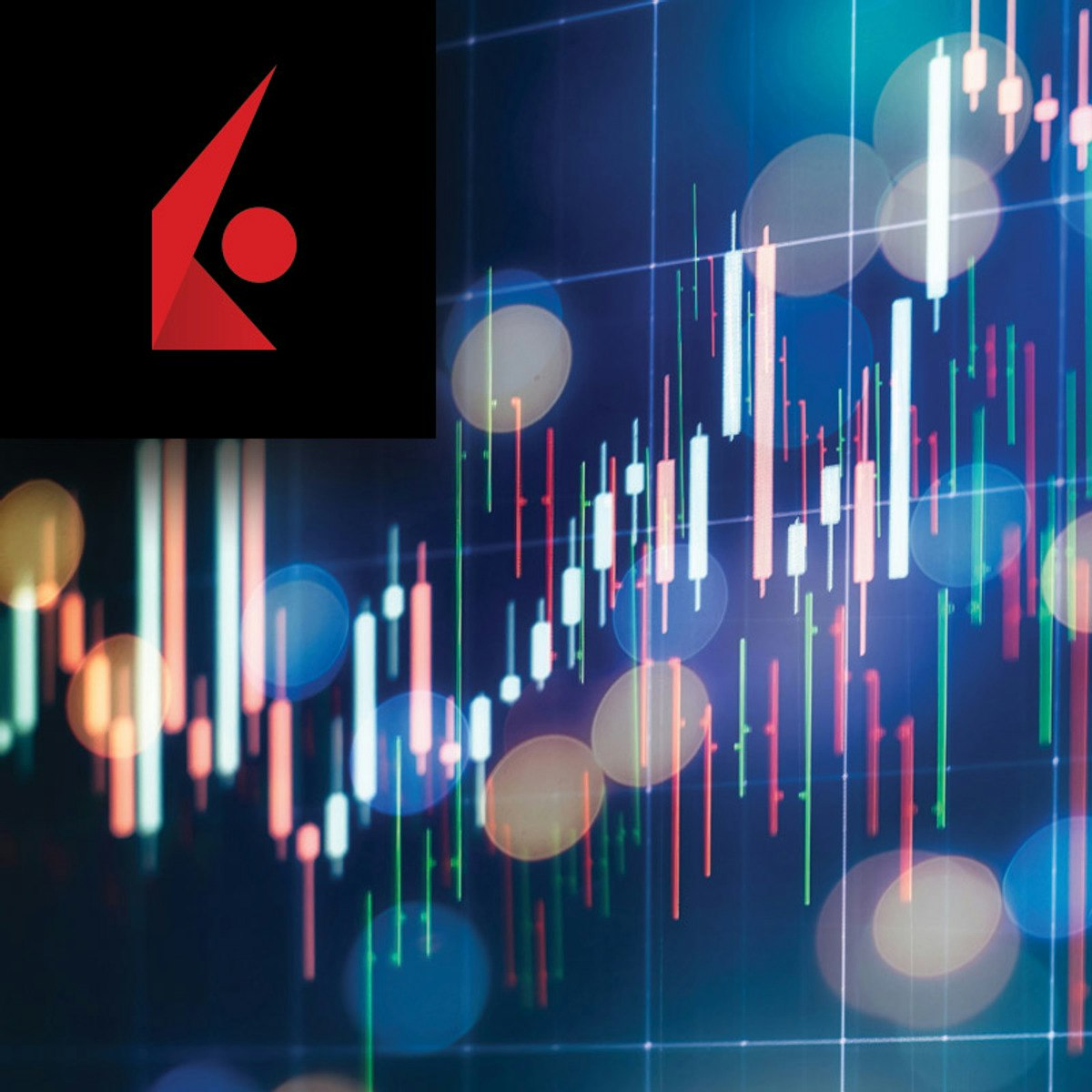Stockbroker
Understanding the Career Path of a Stockbroker
A stockbroker, also known as a registered representative or investment broker, acts as an intermediary between investors and securities exchanges. Their primary role is to buy and sell stocks, bonds, mutual funds, and other securities on behalf of their clients. This involves understanding client financial goals, risk tolerance, and executing trades accordingly.
Working as a stockbroker can be dynamic and engaging. You'll be deeply involved in the ebb and flow of financial markets, requiring sharp analytical skills and quick decision-making. Building strong client relationships and helping individuals and institutions navigate the complexities of investing can also be highly rewarding.
Introduction to Stockbroking
What is a Stockbroker? Defining the Role
At its core, a stockbroker facilitates financial transactions involving securities. They work for brokerage firms or banks and must be licensed to trade securities for clients. Their responsibilities include researching market trends, providing investment advice (though this often overlaps with financial advisors), and managing client accounts.
Stockbrokers earn income primarily through commissions on trades they execute, though fee-based models are becoming more common. This commission structure means their earnings can be directly tied to market activity and the volume of trades they handle, creating a potentially high-pressure but also high-reward environment.
Success in this field hinges on a combination of market knowledge, salesmanship, and trust-building. Brokers must stay informed about economic news, industry developments, and specific company performances to guide their clients effectively.
A Brief History of Stockbroking
The concept of stockbroking dates back centuries, evolving alongside organized markets. Early exchanges, like the Amsterdam Stock Exchange in the 17th century, saw the emergence of agents handling trades. The New York Stock Exchange (NYSE), formally established in the late 18th century, further solidified the broker's role in the financial ecosystem.
Historically, stockbroking involved physical trading floors where brokers shouted orders. Technology has dramatically reshaped this landscape, moving most trading to electronic platforms. Despite these changes, the fundamental role of connecting buyers and sellers remains central to the profession.
Major regulatory shifts, particularly after market crashes like 1929 and the 2008 financial crisis, have also significantly influenced the broker's responsibilities, emphasizing compliance and ethical conduct.
Understanding the historical context provides insight into the evolution of financial markets and the enduring importance of intermediaries.
For those interested in the historical backdrop of financial crises and market dynamics, these books offer valuable perspectives.
Stockbrokers vs. Financial Advisors vs. Traders
While these roles operate within the financial industry and often interact, their functions differ. A stockbroker primarily executes buy and sell orders for clients, often earning commissions. Their advice might be focused on specific investment products.
A financial advisor typically takes a broader approach, focusing on comprehensive financial planning. This includes retirement planning, insurance, estate planning, and investment management, often working on a fee basis rather than commissions. They usually build long-term planning relationships.
Traders, on the other hand, buy and sell securities for their own accounts (proprietary traders) or for the financial institution they work for, rather than for individual clients. Their goal is to profit from short-term market movements. Understanding these distinctions is key to identifying the specific financial career path that aligns with your interests.
The Stockbroker in Today's Global Markets
In the modern era, stockbrokers operate within a complex, interconnected global financial system. Technology allows for instantaneous trading across international exchanges, demanding a global perspective on market events and economic trends.
While automation has streamlined order execution, the human element remains crucial for client relationship management, personalized advice (within regulatory bounds), and navigating complex financial products. Brokers must adapt to new technologies and evolving market structures.
The role is increasingly focused on understanding client needs and providing value beyond simple trade execution, especially as discount online brokerages offer low-cost trading options. This shift emphasizes advisory skills and specialized knowledge.
Educational Pathways to Becoming a Stockbroker
Relevant Undergraduate Degrees
A bachelor's degree is typically the minimum educational requirement for becoming a stockbroker. Degrees in Finance, Economics, Business Administration, or Accounting provide a strong foundation.
Coursework in these programs often covers essential topics like financial markets, investment principles, corporate finance, macroeconomics, and quantitative analysis. These subjects equip aspiring brokers with the analytical tools needed to understand market dynamics and evaluate investments.
While a specific degree isn't always mandatory, relevant coursework demonstrates aptitude and interest to potential employers (brokerage firms) who sponsor candidates for licensing exams. Strong academic performance and internships are highly beneficial.
These introductory finance courses can provide foundational knowledge helpful for aspiring stockbrokers or those needing a refresher.
Licensing: The Gateway to Practice
Becoming a stockbroker requires passing specific licensing exams administered by the Financial Industry Regulatory Authority (FINRA). The most crucial exam is the Series 7, the General Securities Representative Qualification Examination. It covers a broad range of securities products, regulations, and practices.
In addition to the Series 7, brokers typically need to pass the Securities Industry Essentials (SIE) exam, which covers basic industry knowledge, and a state-specific exam like the Series 63 (Uniform Securities Agent State Law Examination) or Series 66 (Uniform Combined State Law Examination).
Brokerage firms usually sponsor new hires for these exams, providing training materials and time to study. Passing these exams is mandatory before a broker can legally conduct securities business with clients. Preparation is rigorous and requires dedicated study.
This course offers specific preparation for a key part of the Series 7 exam.
Understanding the structure of stocks and bonds is fundamental before tackling licensing exams.
The Role of Professional Certifications
While not always required for entry-level stockbroking roles focused purely on execution, professional certifications can enhance credibility and career prospects, especially for those moving into advisory functions. Notable certifications include the Chartered Financial Analyst (CFA) and Certified Financial Planner (CFP).
The CFA designation is highly respected globally and focuses on investment analysis and portfolio management. It requires passing three rigorous exams and meeting specific work experience requirements. It's often pursued by those aiming for roles in portfolio management or equity analysis.
The CFP certification is geared towards comprehensive financial planning for individuals. It covers insurance, estate planning, retirement planning, taxes, and investments. It's more common among financial advisors but can be valuable for brokers who offer broader planning services.
Is Graduate Education Necessary?
A graduate degree, such as a Master of Business Administration (MBA) with a finance concentration or a Master's in Finance, is generally not required to become a stockbroker. Licensing and practical experience are often prioritized for entry-level roles.
However, a graduate degree can be advantageous for career advancement, particularly for moving into senior management, investment banking, or specialized areas like quantitative analysis or portfolio management. It provides deeper theoretical knowledge and advanced analytical skills.
For individuals transitioning from unrelated fields, a master's degree in finance can provide the necessary foundational knowledge and signal commitment to the industry. It can also expand professional networks, which are vital in finance.
Stockbroker Career Progression
Starting Out: Entry-Level Positions
Most individuals begin their stockbroking careers in entry-level roles, often after obtaining their initial licenses (SIE, Series 7, Series 63/66). Common starting positions include Junior Broker, Sales Assistant, or roles within a broker training program at a larger firm.
These roles typically involve supporting senior brokers, learning the firm's systems and processes, developing foundational market knowledge, and sometimes prospecting for new clients under supervision. The focus is on learning the ropes and building a base of understanding.
Early years often involve intensive training, long hours, and pressure to meet performance targets or build a client book. Resilience and a strong work ethic are crucial during this phase.
These introductory courses cover fundamental investing concepts relevant for starting roles.
For beginners, understanding the basics of different investment vehicles is key.
Mid-Career Growth and Specialization
With experience, brokers often develop areas of specialization. Some may focus on specific client segments (e.g., high-net-worth individuals, institutional clients) or particular investment products (e.g., options, fixed income, mutual funds).
Mid-career brokers typically manage larger client portfolios and operate with more autonomy. They may take on mentorship roles for junior staff. Success at this stage often depends on building a loyal client base and demonstrating consistent performance.
Some brokers transition into roles like Portfolio Manager, where they have discretionary authority over client assets, or Financial Advisor, offering broader financial planning services. These paths often require additional certifications like the CFA or CFP.
These courses delve into portfolio management concepts relevant for mid-career advancement.
Reaching Senior Levels
Experienced and successful brokers can advance to senior positions within their firms. These might include roles like Senior Vice President, Managing Director, or Branch Manager, involving leadership responsibilities and overseeing teams of brokers.
At the highest levels, some might move into proprietary trading (trading the firm's capital) or executive management roles overseeing entire divisions or regions. These positions require deep market expertise, strong leadership skills, and a proven track record.
Compensation at senior levels can be substantial, often comprising salary, bonuses, and profit-sharing arrangements, but it also comes with significant responsibility and pressure.
Pivoting to Related Financial Fields
The skills and experience gained as a stockbroker provide a strong foundation for transitioning into other areas of finance. Many former brokers move into investment banking, private equity, hedge fund management, or corporate finance roles.
Other potential paths include becoming an equity research analyst, a financial regulator, or working in financial technology (FinTech) firms that develop trading platforms or analytical tools. The analytical, client-facing, and market knowledge skills are highly transferable.
Pursuing further education (like an MBA or CFA) can facilitate these transitions, opening doors to roles that require more specialized analytical or strategic capabilities.
Ethical and Regulatory Considerations
Navigating the Regulatory Landscape
The securities industry is heavily regulated to protect investors and maintain market integrity. Key regulatory bodies in the United States include the Securities and Exchange Commission (SEC) and FINRA. Brokers must adhere to a complex web of rules governing sales practices, disclosures, and record-keeping.
FINRA oversees brokerage firms and their registered representatives, establishing rules of conduct and administering licensing exams. The SEC is a federal agency responsible for enforcing securities laws and regulating the markets overall.
Understanding and complying with these regulations is paramount. Violations can lead to fines, suspension, license revocation, and legal action. Continuous training on compliance is a standard part of the job.
Common Ethical Challenges
Stockbrokers frequently encounter ethical dilemmas. Conflicts of interest can arise, such as recommending investment products that generate higher commissions for the broker but may not be the absolute best fit for the client's needs.
Other challenges include ensuring recommendations are suitable for a client's risk tolerance and financial situation (suitability rule), avoiding churning (excessive trading to generate commissions), and maintaining client confidentiality. Upholding fiduciary duty—acting in the client's best interest—is critical, especially as regulations like Regulation Best Interest evolve.
Maintaining transparency and prioritizing client interests over personal gain are hallmarks of ethical broking. Strong ethical foundations are crucial for long-term success and maintaining trust.
Understanding behavioral biases can help brokers recognize potential pitfalls in their own and their clients' decision-making.
Learning from Industry Misconduct
High-profile cases of financial misconduct, from insider trading scandals to misrepresentation of investment products, have led to stricter regulations and increased scrutiny of the industry. These incidents underscore the importance of ethical behavior and robust compliance programs.
Studying past failures helps current practitioners understand potential pitfalls and the severe consequences of unethical actions. It reinforces the need for vigilance, transparency, and a culture of compliance within firms.
Brokerage firms invest heavily in compliance training to ensure their employees understand the rules and the ethical standards expected of them. This training often includes case studies of past misconduct.
The Importance of Compliance Training
Mandatory compliance training is an ongoing requirement for stockbrokers. This training covers topics such as anti-money laundering (AML) procedures, cybersecurity best practices, adherence to suitability and best interest standards, and updates on new regulations.
Firms typically conduct annual compliance reviews and require brokers to attest to their understanding and adherence to policies. Failure to complete required training can result in disciplinary action.
This continuous education ensures brokers stay current with evolving rules and maintain the high ethical standards necessary to operate in the financial markets.
Day-to-Day Responsibilities
Managing Client Portfolios
A significant part of a stockbroker's day involves monitoring and managing client investment portfolios. This includes reviewing asset allocation, tracking performance, and identifying potential adjustments based on market conditions or changes in client circumstances.
While some brokers have discretionary authority (making trades without consulting the client for each transaction), many operate on a non-discretionary basis, requiring client approval for trades. Portfolio management involves balancing risk and return according to the client's profile.
Regular portfolio reviews with clients are essential to ensure alignment with their goals and to discuss performance and potential changes. This requires strong analytical and communication skills.
These courses cover aspects of portfolio creation and management.
Market Research and Analysis
Staying informed about market trends, economic news, and company-specific developments is crucial. Brokers spend time reading financial news, analyzing research reports, and using analytical tools to identify potential investment opportunities or risks.
This might involve fundamental analysis (evaluating a company's financial health and intrinsic value) or technical analysis (studying price charts and trading volumes to predict future movements). The goal is to make informed recommendations or trading decisions.
Access to research platforms, financial data services (like Bloomberg or Reuters), and internal firm research are vital resources for this aspect of the job.
Learning technical analysis techniques is valuable for market assessment.
These books are considered seminal texts in security analysis and technical trading.
Executing Trades
A core function remains the execution of buy and sell orders for clients. This requires precision, speed, and adherence to specific client instructions and regulatory requirements. Brokers use electronic trading platforms provided by their firms to place orders on various exchanges.
They must ensure orders are filled at the best possible price (best execution) and confirm trades with clients promptly. Accuracy is critical, as errors can be costly for both the client and the firm.
Understanding different order types (e.g., market orders, limit orders, stop-loss orders) and how market liquidity affects execution is essential technical knowledge for a broker.
Client Communication and Relationship Management
Building and maintaining strong client relationships is fundamental to success. Brokers communicate regularly with clients via phone, email, and in-person meetings to discuss market conditions, portfolio performance, and potential investment ideas.
Effective communication involves not just providing information but also actively listening to understand client needs, concerns, and goals. Managing client expectations, especially during volatile market periods, requires empathy and clear communication.
Prospecting for new clients and servicing existing ones are ongoing activities. Trust, built through consistent communication and reliable service, is the bedrock of a successful broker-client relationship.
Technology in Modern Stockbroking
The Rise of Algorithmic and High-Frequency Trading
Technology has revolutionized trading. Algorithmic trading uses computer programs to execute trades based on pre-set instructions, often at speeds impossible for humans. High-frequency trading (HFT) is a subset of this, involving extremely rapid trades to capture tiny price discrepancies.
While most retail stockbrokers don't directly engage in HFT, they operate in markets heavily influenced by these technologies. Understanding the impact of algorithms on market liquidity and volatility is important.
Some specialized roles within brokerage firms involve developing or managing these trading algorithms, requiring strong quantitative and programming skills.
Artificial Intelligence and Market Prediction
Artificial Intelligence (AI) and machine learning are increasingly used in finance for tasks like analyzing vast datasets, identifying complex patterns, predicting market trends, and even automating aspects of client communication (e.g., chatbots).
AI tools can augment a broker's research capabilities, helping them process information more efficiently and potentially uncover insights missed by traditional analysis. However, the reliability and limitations of AI predictions must be carefully considered.
The integration of AI is changing workflows and requiring brokers to adapt and potentially develop new skills related to data analysis and understanding AI-driven tools.
These courses touch upon using programming or advanced methods in financial contexts.
This book explores the application of machine learning specifically for investment management.
Cybersecurity in the Financial Sector
With the reliance on digital platforms for trading and client data management, cybersecurity has become a critical concern. Brokerage firms handle sensitive personal and financial information, making them prime targets for cyberattacks.
Brokers must be vigilant about protecting client data, using secure communication methods, and recognizing phishing attempts or other social engineering tactics. Firms invest heavily in cybersecurity infrastructure and training.
Regulatory bodies also impose strict requirements on financial institutions regarding data security and breach notifications, adding another layer of responsibility for brokers and their firms.
The Shift from Trading Floors to Digital Platforms
The iconic image of crowded trading floors has largely given way to sophisticated electronic trading platforms. Most transactions are now executed digitally, increasing efficiency and reducing costs but also changing the nature of the job.
This shift requires brokers to be proficient with various trading software and analytical tools. While direct human interaction on the trading floor is less common, communication skills remain vital for interacting with clients and colleagues remotely.
The move to digital platforms has also facilitated the rise of online discount brokerages, intensifying competition and pushing traditional brokers to emphasize value-added services like personalized advice and relationship management.
Global Stockbroking Markets
Comparing Major International Exchanges
Stockbrokers often deal with securities listed on various global exchanges. Understanding the differences between major hubs like the New York Stock Exchange (NYSE), Nasdaq, London Stock Exchange (LSE), Tokyo Stock Exchange (TSE), and others is important.
Exchanges differ in their listing requirements, trading hours, regulatory environments, and the types of companies predominantly listed. For instance, Nasdaq is known for technology stocks, while the LSE has a strong presence in international listings.
Brokers working with international clients or trading foreign securities need awareness of these differences and the associated currency exchange risks.
Opportunities in Emerging Markets
Emerging economies often present significant growth potential, attracting investor interest. Stockbrokers may find opportunities in facilitating investments into markets in Asia, Latin America, Africa, or Eastern Europe.
However, investing in emerging markets typically involves higher volatility, political risk, and less regulatory transparency compared to developed markets. Brokers advising on these investments need specialized knowledge and a thorough understanding of the specific risks involved.
Firms specializing in emerging markets provide research and platforms tailored to navigating these complex environments.
Cross-Border Regulatory Complexities
Operating across international borders introduces significant regulatory challenges. Brokers must comply with the rules of both their home country and the country where the client resides or the security is traded.
Issues like differing tax laws, investor protection standards, and anti-money laundering regulations require careful navigation. Firms often have dedicated compliance teams to manage these cross-border complexities.
Brokers dealing with international clients need specific training and authorization to ensure they meet all applicable legal and regulatory requirements.
Cultural Nuances in Client Relationships
Building trust and effective communication with clients from different cultural backgrounds requires sensitivity and awareness. Communication styles, attitudes towards risk, and expectations regarding financial advice can vary significantly across cultures.
Brokers working in global markets or serving a diverse clientele benefit from developing cross-cultural communication skills. Understanding these nuances can strengthen client relationships and lead to more effective collaboration.
Language skills can also be a significant asset for brokers working with international clients, facilitating clearer communication and building rapport.
These courses offer introductions to investing or finance in languages other than English, reflecting the global nature of markets.
Challenges and Risks in Stockbroking
Dealing with Market Volatility
Financial markets are inherently volatile, subject to swings based on economic data, geopolitical events, and investor sentiment. Stockbrokers must navigate this volatility daily, both in managing client portfolios and handling client emotions.
Market downturns can lead to significant portfolio losses, causing client anxiety and potentially impacting the broker's income if it's tied to assets under management or commissions. Helping clients stick to long-term plans during turbulent times is a key challenge.
Developing strategies for risk management and maintaining composure under pressure are essential skills for surviving and thriving in this environment.
These books explore market dynamics, risk, and behavioral responses, which are relevant to managing volatility.
Stress and Mental Well-being
The stockbroking profession is known for being high-stress. Factors contributing to stress include long working hours, intense pressure to meet sales targets or performance benchmarks, the constant need to monitor markets, and the responsibility of managing clients' financial futures.
Market volatility and dealing with client concerns, especially during downturns, can take a significant emotional toll. Burnout is a real risk in this demanding field.
Developing healthy coping mechanisms, maintaining work-life balance (though often challenging), and seeking support when needed are crucial for long-term sustainability and mental well-being in this career.
Client Acquisition and Retention Pressures
Building and maintaining a book of clients is central to a stockbroker's success, especially for those whose compensation relies heavily on commissions or assets under management. Prospecting for new clients can be time-consuming and competitive.
Retaining existing clients requires providing excellent service, demonstrating value, and building strong relationships. Client attrition can occur due to poor market performance, dissatisfaction with service, or competition from other brokers or platforms.
The constant pressure to grow and retain the client base adds another layer of stress to the role, demanding strong sales, networking, and relationship management skills.
The Risk of Automation and Job Displacement
The rise of robo-advisors and sophisticated trading algorithms has raised questions about the future of the traditional stockbroker role. Automation can handle tasks like portfolio rebalancing and even basic investment advice at a lower cost.
While purely transactional roles are most at risk, brokers who focus on complex financial planning, high-touch client relationships, and specialized advice are better positioned to adapt. The role is evolving towards a more advisory and relationship-focused model.
Continuous learning, skill development (particularly in areas complementing technology), and adapting to new service models are essential for brokers to remain relevant in an increasingly automated landscape.
Online Learning and Skill Development
Essential Skills for Success
Aspiring and current stockbrokers need a diverse skill set. Core competencies include strong analytical skills for market research, quantitative aptitude for understanding financial data, and excellent communication and interpersonal skills for client interaction.
Knowledge of financial modeling, proficiency with trading platforms and financial software (like Excel for data analysis), understanding of various investment products, and a firm grasp of regulatory requirements are also vital.
Sales and negotiation skills are important for building a client base, while ethical judgment and integrity are non-negotiable for maintaining trust and compliance.
Online courses provide flexible ways to acquire or sharpen many of these essential skills, from technical analysis to foundational finance.
Foundational books can provide deep dives into core investment philosophies and techniques.
Leveraging Online Courses for Career Growth
Online learning platforms offer a wealth of resources for those pursuing a stockbroking career. Courses cover everything from introductory finance and investment principles to advanced topics like options trading, technical analysis, and portfolio management.
For career changers, online courses can bridge knowledge gaps and provide foundational understanding before committing to licensing exams. For current professionals, they offer opportunities for continuous professional development, skill enhancement, and staying current with market trends and new technologies.
Platforms like OpenCourser allow learners to browse finance and economics courses, compare options, and find resources tailored to specific learning goals. Many courses offer certificates upon completion, which can be added to professional profiles.
These courses cover various aspects of investing and trading suitable for self-paced online learning.
Simulated Trading and Practical Application
Many online platforms and brokerage firms offer simulated trading accounts, often called paper trading accounts. These allow aspiring brokers to practice executing trades and managing virtual portfolios using real market data but without risking actual capital.
Simulated trading is an invaluable tool for developing practical skills, testing trading strategies, and becoming familiar with trading platform functionalities. It provides a safe environment to learn from mistakes before entering the live market.
Integrating theoretical knowledge from courses with hands-on practice through simulation helps solidify understanding and build confidence. It's a highly recommended step for anyone serious about trading.
Integrating Online Learning with Formal Education and Licensing
Online courses can effectively supplement formal education, like a finance degree, by offering specialized knowledge in areas not covered in depth or providing practical skills training. They can also be crucial resources for preparing for licensing exams like the Series 7.
While online courses typically don't replace the need for a degree or official licenses, they provide flexible, accessible, and often cost-effective ways to acquire necessary knowledge and skills. They empower self-directed learning and continuous professional development.
OpenCourser's Learner's Guide offers tips on structuring self-study plans and making the most of online educational resources, helping learners integrate them effectively into their career preparation.
This course offers a certification exam after foundational learning, demonstrating a way online platforms support credentialing.
Frequently Asked Questions
What is the typical salary range for a stockbroker?
Compensation for stockbrokers varies widely based on experience, firm size, location, performance, and compensation structure (commission, salary, bonus). Entry-level brokers might start with a base salary plus potential commissions.
Experienced brokers with a substantial client base can earn significantly more, often well into six figures or higher. However, income can be volatile, especially if heavily commission-based, fluctuating with market conditions and trading volume.
According to the U.S. Bureau of Labor Statistics (BLS), the median annual wage for Securities, Commodities, and Financial Services Sales Agents was $71,720 in May 2023. However, top earners in the field made considerably more. Remember, these figures are medians and actual earnings depend heavily on individual performance and firm specifics.
Is stockbroking a dying career due to automation?
It's more accurate to say the role is evolving rather than dying. Automation, robo-advisors, and discount online platforms have certainly impacted the traditional brokerage model, particularly roles focused solely on trade execution.
However, there remains a strong demand for skilled professionals who can provide personalized financial advice, manage complex portfolios, build client relationships, and navigate intricate financial products – areas where human judgment and interaction are still highly valued.
The future likely involves brokers leveraging technology to enhance their services, focusing more on advisory and relationship management aspects rather than just facilitating transactions. Adaptability and continuous skill development are key.
How long does it typically take to get licensed?
The timeline for licensing varies depending on the individual's study habits, prior knowledge, and the firm's training program. Typically, sponsored candidates spend several weeks to a few months preparing for the SIE, Series 7, and Series 63/66 exams.
Firms usually provide structured training programs and dedicated study time. Passing all required exams within the firm's designated timeframe is often a condition of continued employment.
Intensive study is required, as the exams cover a broad range of complex topics. Diligent preparation is crucial for passing on the first attempt.
Can introverts succeed as stockbrokers?
Yes, introverts can succeed, although the role traditionally favors strong interpersonal and networking skills often associated with extroversion. Success depends more on competence, integrity, analytical ability, and building trust than on personality type alone.
Introverts may excel in the research and analytical aspects of the job. While client interaction is essential, building deep, trust-based relationships one-on-one can be a strength for introverts.
Finding a firm or a specific role within brokerage that aligns with one's strengths is key. Some roles might be more research-focused, while others are heavily client-facing.
What industries hire stockbrokers besides traditional finance?
While most stockbrokers work for brokerage firms, investment banks, or commercial banks, the skills acquired are transferable. Individuals with brokerage experience might find opportunities in corporate finance departments of large companies, managing company investments or pension funds.
Other possibilities include roles in financial regulation (working for bodies like the SEC or FINRA), financial journalism, consulting firms specializing in financial services, or FinTech companies developing financial products and platforms.
An understanding of markets, investments, and regulations gained as a broker is valuable in many contexts within and adjacent to the financial sector.
How can brokers rebuild client trust after market downturns?
Market downturns are inevitable and test client relationships. Rebuilding trust requires proactive and transparent communication. Brokers should reach out to clients, explain market conditions honestly, and review portfolios in the context of long-term goals.
It's crucial to demonstrate empathy and reinforce the agreed-upon investment strategy. Avoid making unrealistic promises about recovery timelines. Focus on managing risk and ensuring the portfolio remains aligned with the client's tolerance and objectives.
Consistency, patience, and demonstrating that you are acting in the client's best interest, even during difficult periods, are key to maintaining and rebuilding trust over time.
Related Fields and Further Exploration
The world of finance is vast, and skills developed as a stockbroker can open doors to various related careers. Exploring these options can provide a broader perspective on the industry and potential future paths.
Consider exploring careers such as:
Deepening your knowledge in core investment topics is also beneficial:
OpenCourser offers extensive resources across the Finance & Economics category, allowing you to delve deeper into specific areas of interest.
Embarking on a career as a stockbroker requires dedication, continuous learning, and resilience. It involves navigating complex markets, building strong client relationships, and adhering to strict ethical and regulatory standards. While challenging, it offers the potential for significant intellectual stimulation and financial reward. Carefully weigh the demands and opportunities against your own skills, interests, and career aspirations. With thorough preparation and a commitment to lifelong learning, success in this dynamic field is achievable.





















